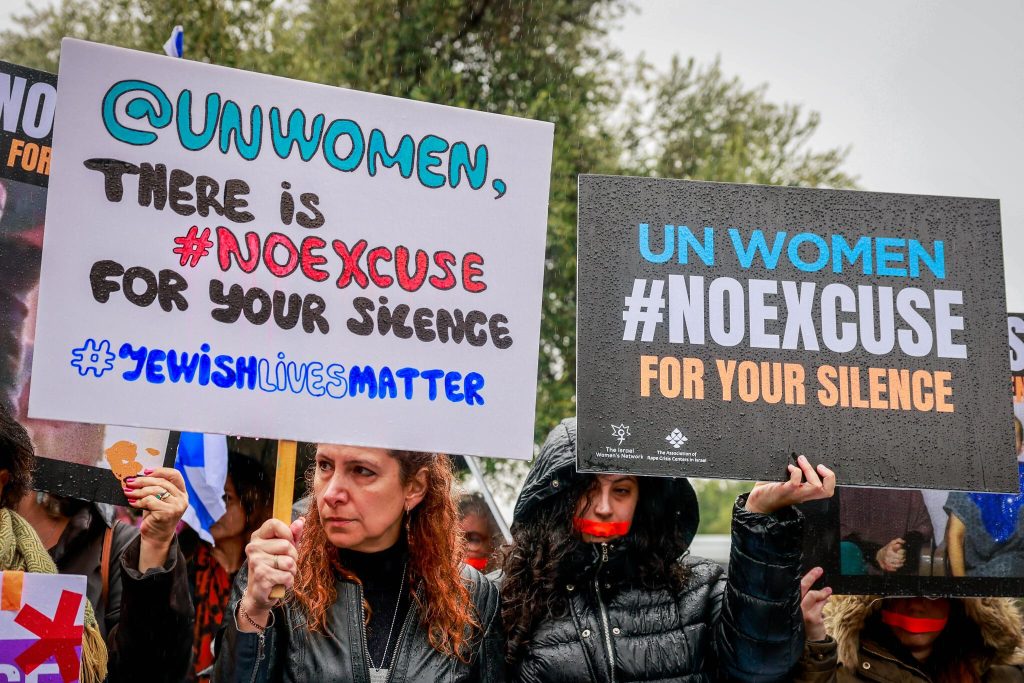The real lesson of October 7 denialism: Israel is in the right

by Lev Tsitrin
“Friends star says Hamas rape deniers ‘re-traumatize survivors’” is the title of a report on David Schwimmer’s puzzlement over the fact that “many international women’s humanitarian organizations have stayed silent on the issue, and the United Nations only began discussions of an investigation into the matter two months after the October 7th massacre.”
Re-traumatization is certainly one of the results of this silence. But there is — or at least, ought to be — another one, too, the one manifested in our reaction to their [non-]reaction. Mr. Schwimmer’s is that of disbelief — “Why do so many REFUSE TO BELIEVE — despite all the evidence on camera and in testimony — the women, children, and men brutally assaulted by terrorists on Oct. 7th? Where is their outrage? In the weeks and months that followed, it became clear that their activism, their advocacy, is conditional. They’ll fight like hell for ALL victims of sexual violence — unless they’re Jews. For many of them, denying it even happened is a convenient way of avoiding compassion and personal responsibility.”
I think that his seemingly rhetorical question of “why” has a different answer: it allows them to avoid a very painful process of changing their worldview. It is not so much that they lack sympathy with the victimized Jews, I suspect — but that they feel conflicted on how to deal with the impact of the sympathy for Jews on their sympathy for the Palestinians. Their dilemma is obvious: Palestinians are “oppressed,” and the “oppressed” are saints — and yet, saints just don’t go for sadistic butchery and rape — those who do, are by the very definition of the word, not saints.
So the question for the good people of the UN and “many international women’s humanitarian organizations” becomes in essence, “how to save the appearances?” How to reconcile the irreconcilable? How to stay sympathetic to the Palestinians when they do not deserve sympathy?
This is a classic clash of values: compassion for the victims of rape and butchery clashing with the innate sympathy the Palestinians — who are the culprit. Something has to give — and we know what gave. The Palestinian cause is too sacred — hence, the terrible atrocities of October 7 did not happen.
Psychologists tell us that denial is a valid response to a trauma — and October 7 badly traumatized the pro-Palestinian position of the UN, and the “many international women’s humanitarian organizations”. The question is, how should we respond to their trauma?
I think that the only proper response is to see the “refusal to believe” as a ringing endorsement of Israel’s goal of destroying Hamas. The deniers of October 7 atrocities cannot but close their eyes to reality because if they faced it, their worldview, rooted in Palestinian sainthood, would collapse — causing them the unbearable psychological pain. The price they are willing to pay to avoid that pain — the denial of reality — is the testimony to the harshness of that reality, proving — in an admittedly perverse way — their mute acknowledgement that Israel is in the right.
The refusal to acknowledge reality is never a good thing, but it speaks volumes. That the good people in the “many international women’s humanitarian organizations” and the UN are willing to close the yes to reality of October 7 attack proves the harshness of the reality Israel is facing — and the need for extraordinary measures it needs to take to defend itself. Watching the deniers twist and turn in their psychological pain, alleviating it by lies, tells us that Israel is in the right — and that Hamas must be destroyed. That, I think, the lesson to be drawn from the denials of the horrors of October 7.